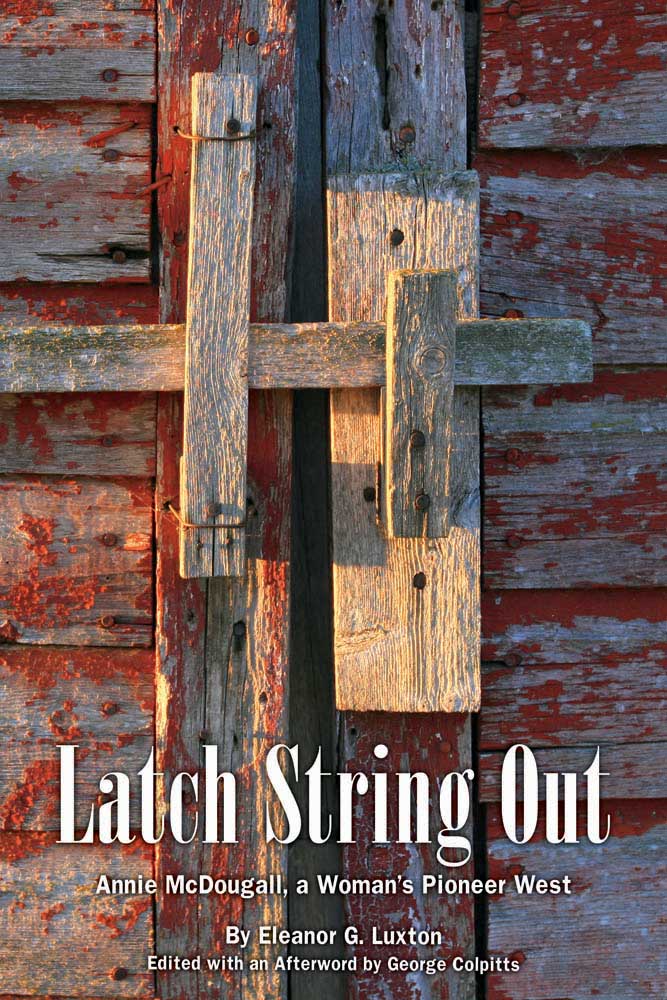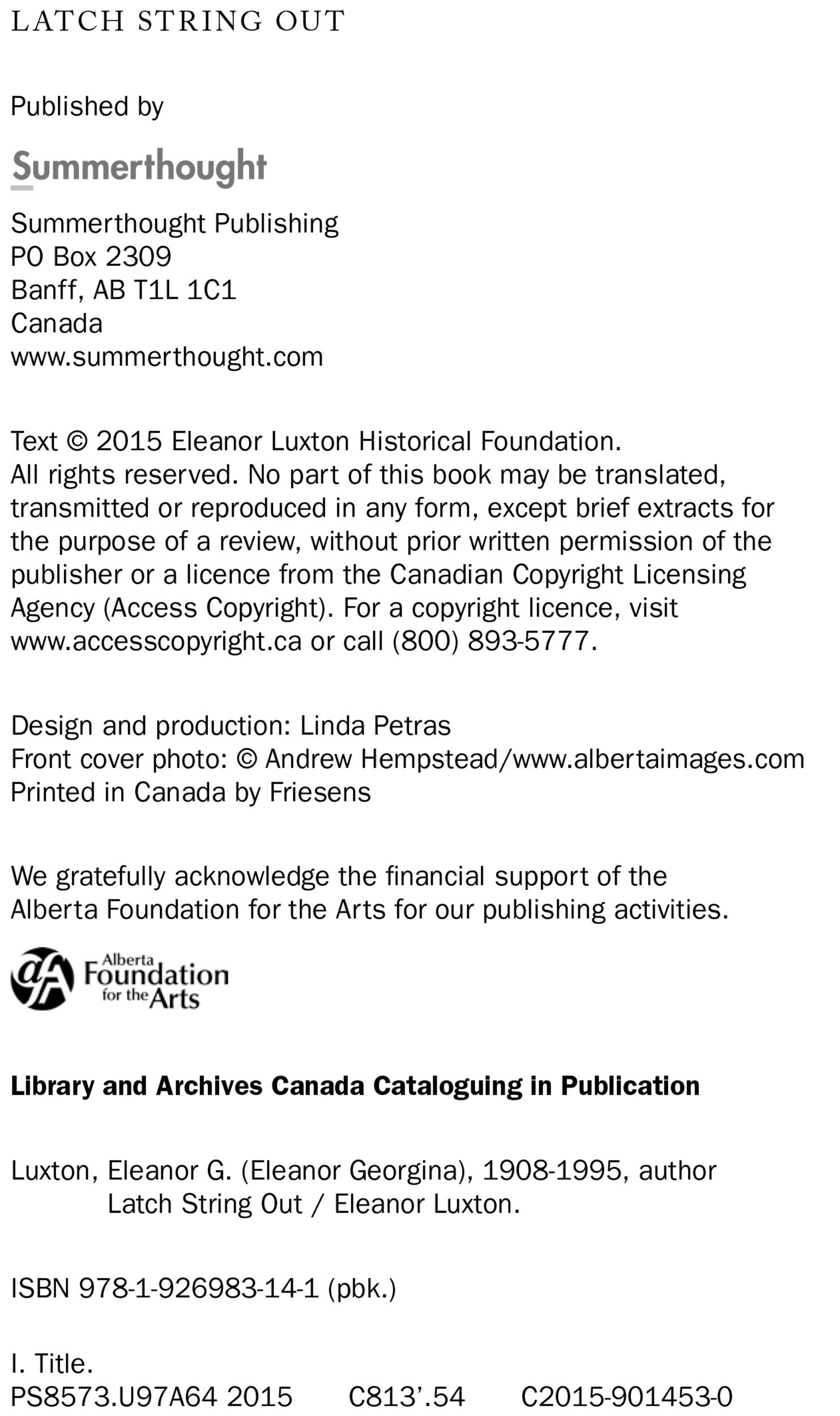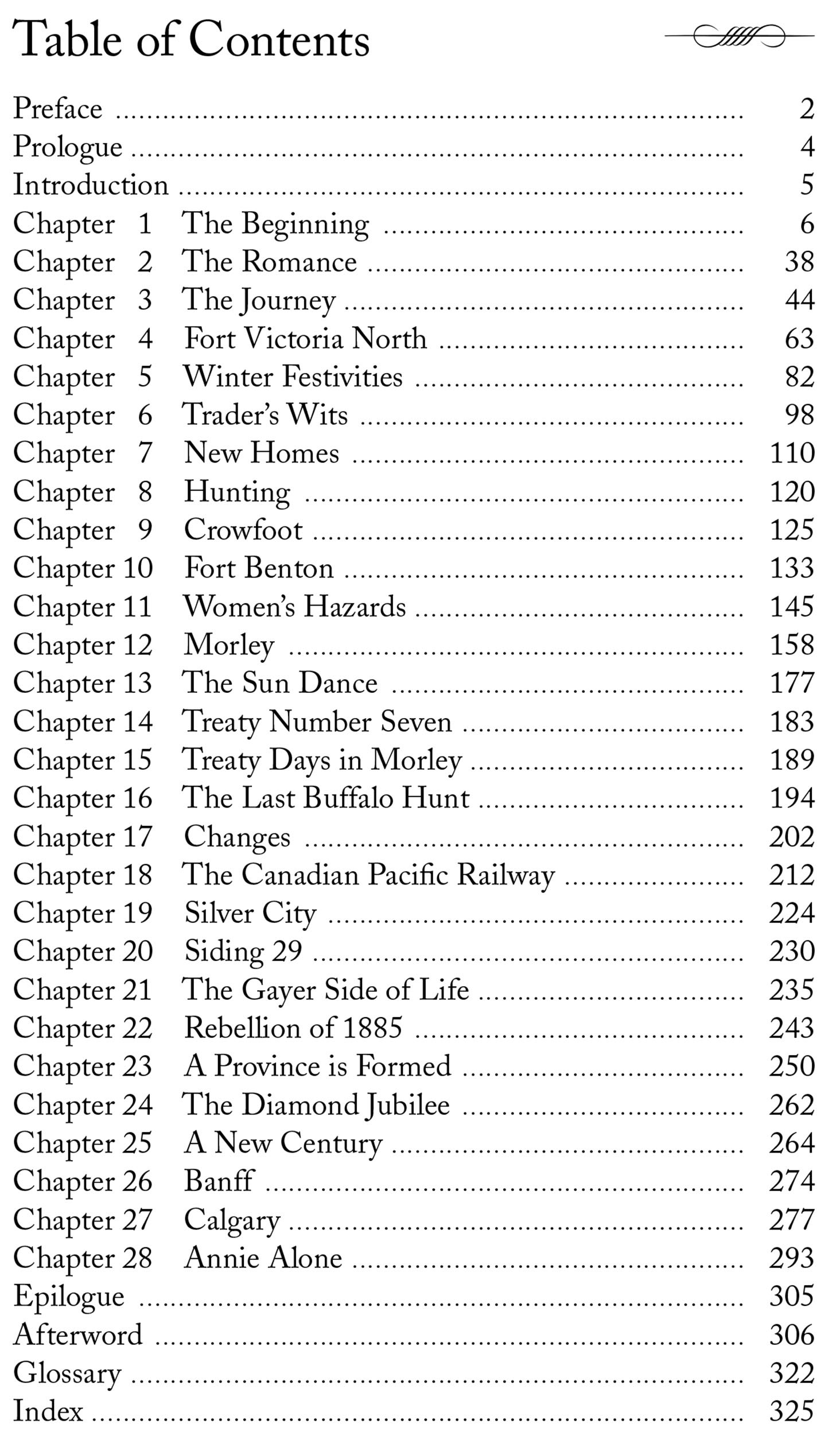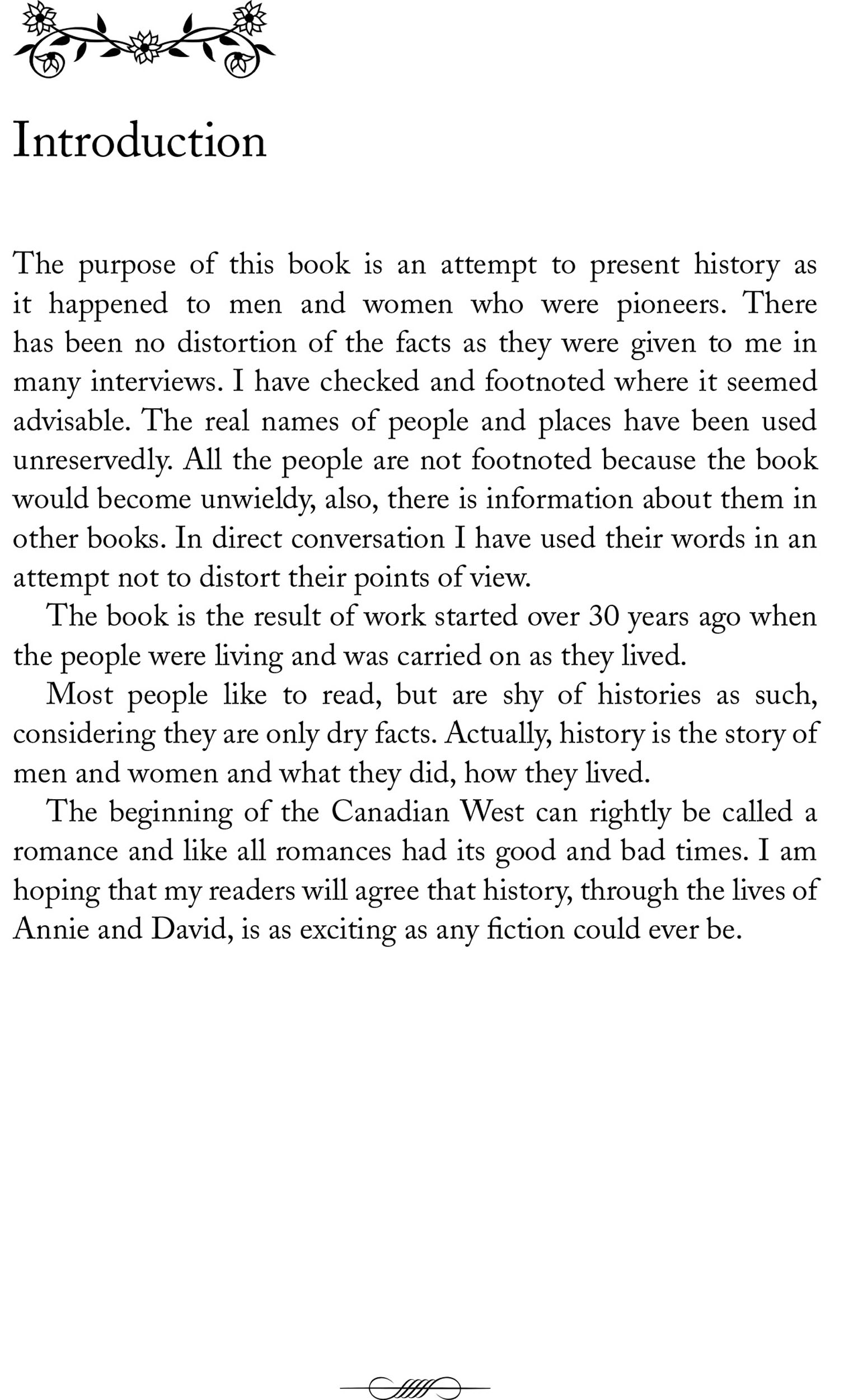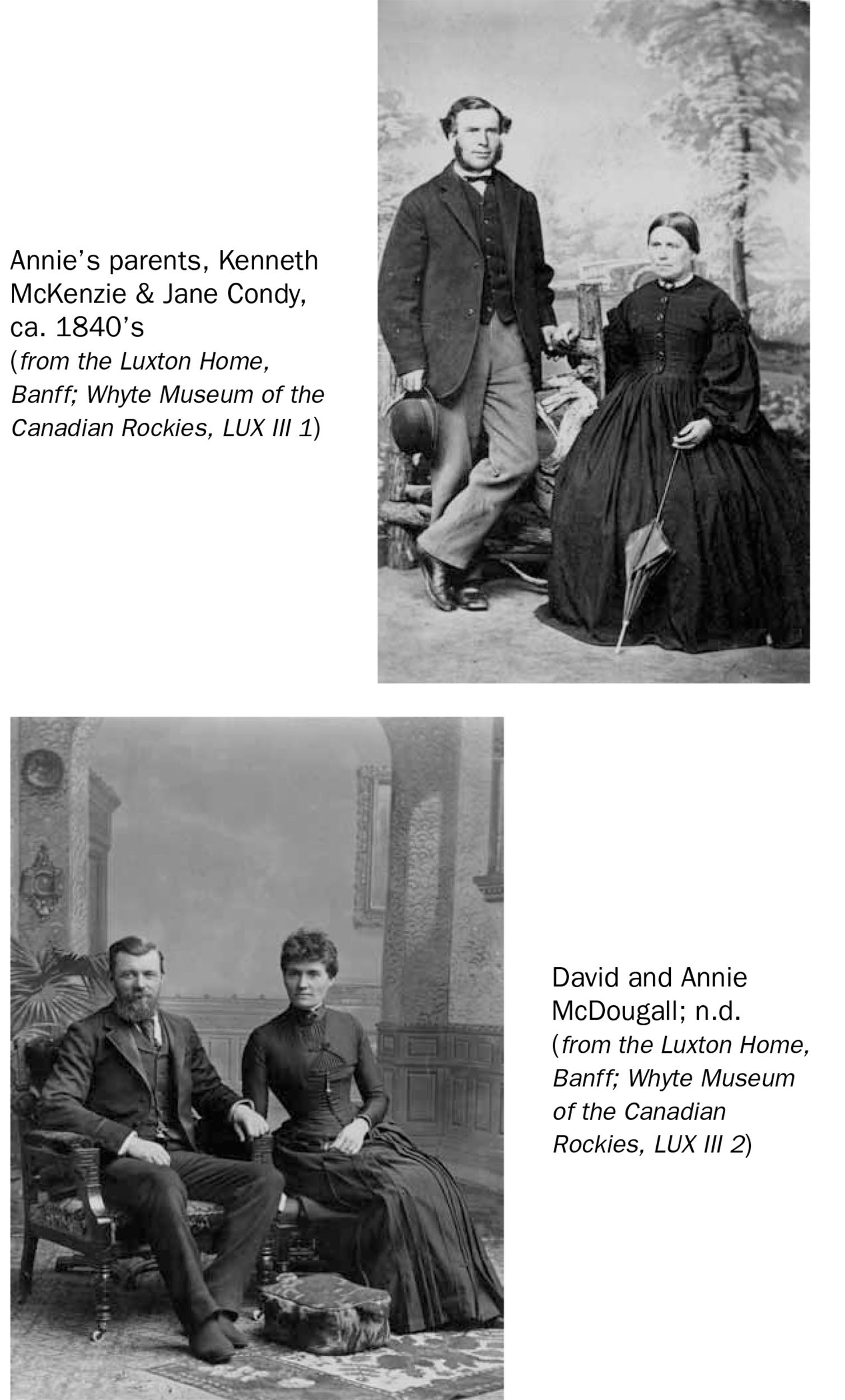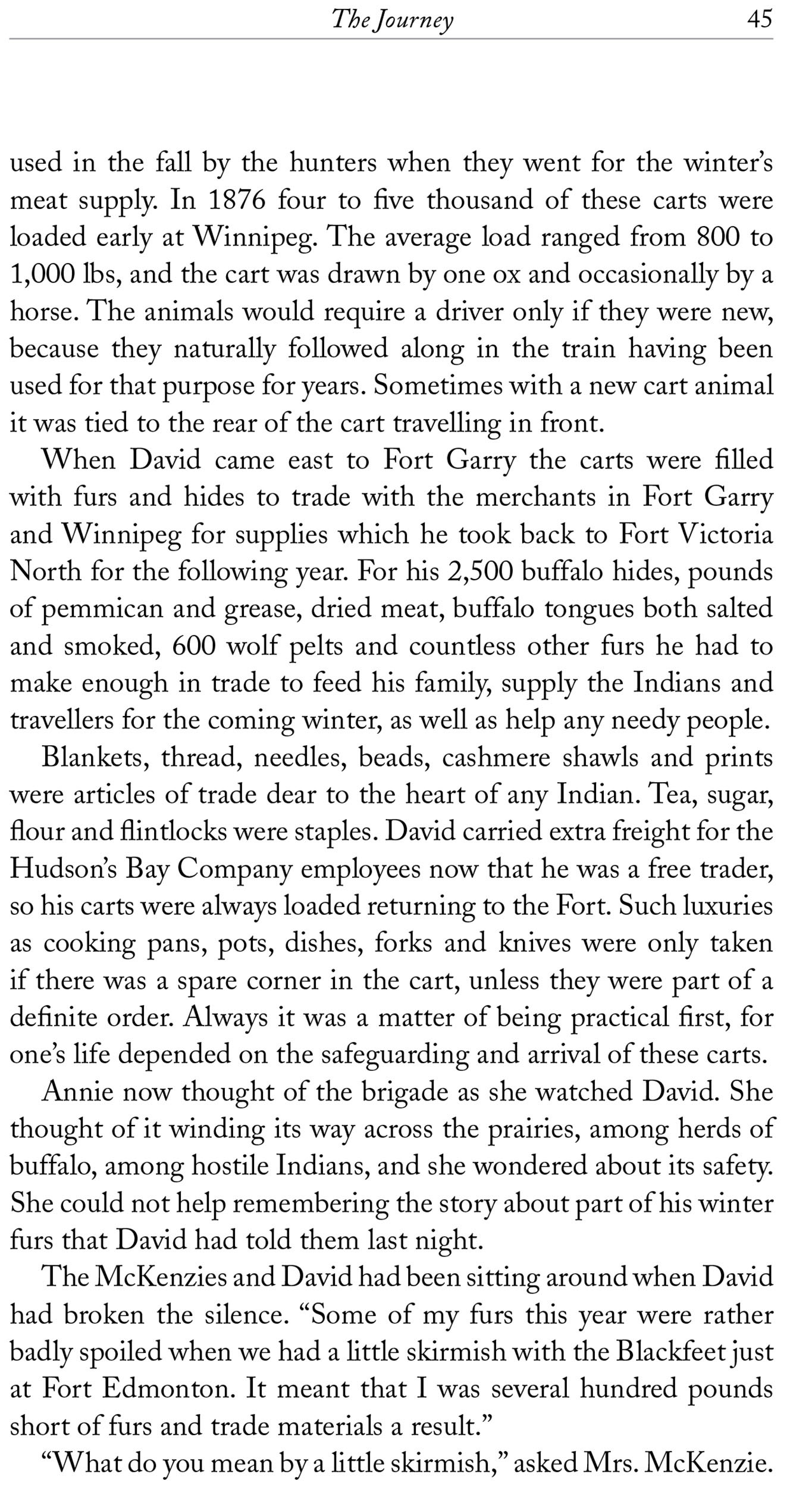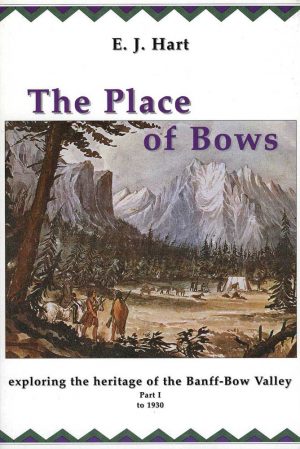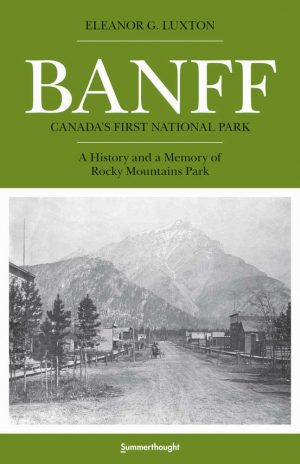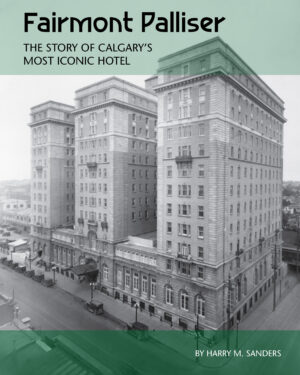Latch String Out
By: Eleanor G. Luxton
ISBN: 9781926983141
Publication date: December 2015
352 pages | Softcover | 6 x 9 inches
$24.95
Also Available Here
Description
Written over a 30-year period, Eleanor G. Luxton’s Latch String Out dramatically describes the pioneer life of Annie McKenzie McDougall, wife of western fur trader and rancher, David McDougall. Annie saw some of the last buffalo hunting in the West, witnessed the signing of Treaty No. 7, and lived through the dramatic changes and growth of communities at Morley, Banff and Calgary.
The term “Latch String Out” held great meaning to any pioneer woman. If a cabin door’s interior latch had a string on the outside, anyone could open it. Any stranger was welcome. Anyone would be fed.
Eleanor Luxton’s Latch String Out is just as generous as a history of early western Canada. It welcomes readers to a rich fare, particularly through the experience of Annie McKenzie McDougall. Wife of an early fur trader, Annie made homes and raised a family in the era of the buffalo, before the rush of western settlement and the building of the railway. From her own cabin door Annie saw the sway of prairie grass around Rat Creek, in Manitoba. Later, at Morley, she witnessed the great storms and felt the chinook winds moving through the magnificent passes of the nearby Rocky Mountains. Annie probably saw more of the Canadian West than most automobile-drivers now do. She frequently led or accompanied cart brigades from Morley and the Victoria Settlement in the western portions of the Northwest Territories (now Alberta) to Red River – some 800 miles distant. She travelled by buckboard and buffalo skin boat, cariole and carriage. Annie also witnessed the West’s transformation. She lived through the treaty era, helped establish the ranching frontier and saw Calgary and early settlements in Alberta become thriving commercial centres. By the end of her life, Annie had gained considerable material wealth and social standing within the ranks of the province’s early civic elite.
This book is more than simply a history of a remarkable woman. It says much about its author Eleanor Luxton, Annie’s granddaughter. Daughter of famous Banff newspaperman Norman Luxton, Eleanor grew up hearing stories from her grandparents, aunts and uncles, as well as the many pioneers still alive around her. Drawing from this oral record, Eleanor read widely early Western history and researched Latch String Out over a 20-year period before completing the book in the early 1950s. Until her death in 1995, she continued to revise the manuscript and never lost hope in seeing it published. The book’s reliance on community stories gives it inestimable historical value. It stands as a rare jewel of “vernacular” history – a history written by a member of a community, from a community’s perspective. It is also a remarkable example of an early Alberta female biography.
ABOUT THE AUTHOR
Eleanor Luxton (1908-1995) is perhaps uniquely qualified to have written about Annie McDougall, one of Alberta’s per-eminent pioneers, having deep roots not only in this area but in the larger region of western Canada. Her maternal great-grandfather, the Reverend George McDougall, came west in 1860 to found Fort Victoria North (now Pakan). W. F. Luxton, paternal grandfather, was the first school teacher in Winnipeg, and founded The Winnipeg Free Press in 1872.
Annie’s daughter, Georgia McDougall Luxton, was Eleanor’s mother, and also the first white child born in the area we now call the province of Alberta. Her father, Norman Luxton, made an epic return voyage across the Pacific Ocean in a thirty-foot dugout canoe (the story of which is recorded in one of Miss Luxton’s books, The Voyage of the Tilikum), came to Banff, founded the town newspaper, The Crag & Canyon, and played an instrumental role in developing the area into the world-renowned National Park it is today. With such close ties with Canada’s past, it is little wonder that Eleanor Luxton turned to writing history.
Throughout the years of Miss Luxton’s many-facetted career – which ranges from locomotive design for the Canadian Pacific Railway to lecturer at McGill University and technician in charge of a medical laboratory – she carried on the historical research of western Canada’s pioneers.

